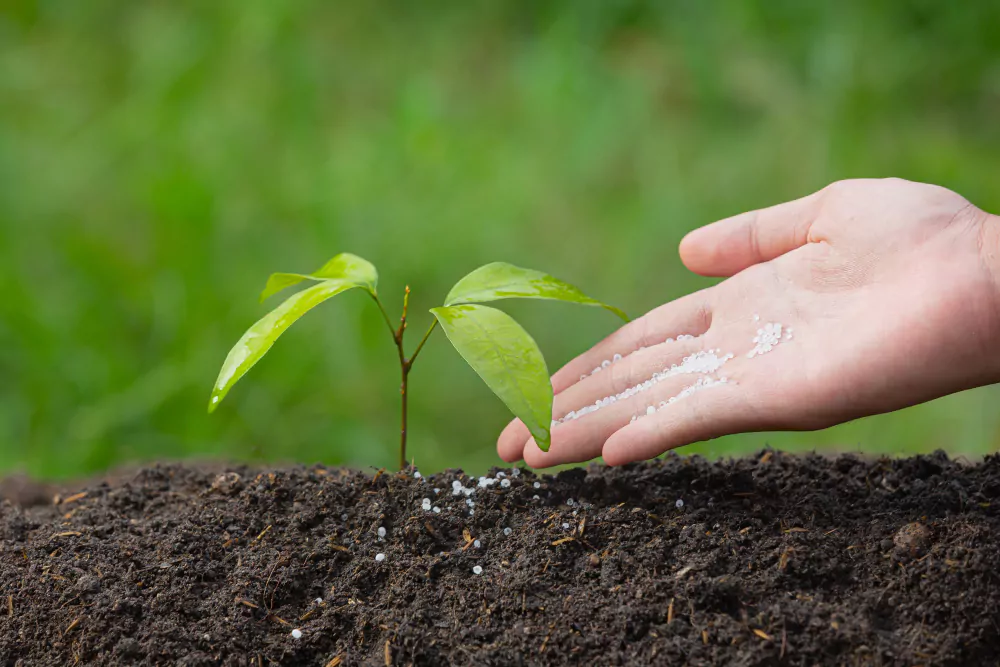Introduction:
Amidst an escalating global emphasis on sustainable farming practices and food security, a groundbreaking study published in PLoS One has revealed that biofertilizers derived from wastewater treatment can significantly enhance plant growth. This transformative research, conducted by the interdisciplinary team of scientists from UNESP – São Paulo State University, substantiates the burgeoning assertion that reuse of treated sewage components can constitute an alternative to conventional, resource-intensive fertilizers. The profound implications of these findings could steer the agricultural sector towards environmental resilience and resource circularity.
Study Overview:
The study, meticulously documented in the article titled “Biofertilizers from wastewater treatment as a potential source of mineral nutrients for growth of amaranth plants” (DOI: 10.1371/journal.pone.0295624), rigorously evaluated the effects of sewage-derived biofertilizers on Amaranthus cruentus, a plant species known for its nutritional and economic value. The research explored a range of biofertilizers incorporating microalgae, biosolids, and reclaimed water, comparing them against control treatments using inorganic fertilizer.
Findings:
The investigative team, spearheaded by Elisa Teófilo Ferreira and colleagues, discovered that the nutritional content of dry microalgae and biosolids were significantly rich in crucial elements such as nitrogen (N), phosphorus (P), copper (Cu), iron (Fe), zinc (Zn), and sodium (Na). Interestingly, wet microalgae exhibited high concentrations of Cu, Fe, and Zn, whereas reclaimed water after tertiary sewage treatment was notably abundant in N, potassium (K), calcium (Ca), and sulfur (S).
The study also revealed that plants augmented with biofertilizers, particularly high doses of biosolids or reclaimed water, illustrated improved total chlorophyll levels and photosynthetic rates – a testament to the efficacy of organic fertilizers derived from sewage.
Impact on Agriculture:
The implications of adopting sewage-based biofertilizers are multi-faceted. These organic alternatives not only address the ecological detriments associated with synthetic fertilizers but also present a potentially cost-effective means of boosting plant growth. Moreover, the study reinforces the critical role such sustainable practices play in circular economy initiatives, aiming for the maximal utilization of available resources while minimizing waste.
References:
1. Ferreira, E. T., Barrochelo, S. C., de Melo, S. P., Araujo, T., Xavier, A. C. C., Cechin, I., & da Silva, G. H. R. (2023). Biofertilizers from wastewater treatment as a potential source of mineral nutrients for growth of amaranth plants. PloS one, 18(12), e0295624. https://doi.org/10.1371/journal.pone.0295624
2. Hussain, F., Shah, S. Z., Ahmad, H., Abubshait, S. A., Abubshait, H. A., Laref, A., … & others. (2021). Microalgae an ecofriendly and sustainable wastewater treatment option: Biomass application in biofuel and bio-fertilizer production. A review. Renewable and Sustainable Energy Reviews, 137, 110603. https://doi.org/10.1016/j.rser.2020.110603
3. Silambarasan, S., Logeswari, P., Sivaramakrishnan, R., Incharoensakdi, A., Cornejo, P., Kamaraj, B., … & others. (2021). Removal of nutrients from domestic wastewater by microalgae coupled to lipid augmentation for biodiesel production and influence of deoiled algal biomass as a biofertilizer for Solanum lycopersicum cultivation. Chemosphere, 268, 129323. https://doi.org/10.1016/j.chemosphere.2020.129323
4. Suleiman, A. K. A., Lourenço, K. S., Clark, C., Luz, R. L., da Silva, G. H. R., Vet, L. E., … & others. (2020). From toilet to agriculture: Fertilization with microalgal biomass from wastewater impacts the soil and rhizosphere active microbiomes, greenhouse gas emissions, and plant growth. Resources, Conservation and Recycling, 161, 104924. https://doi.org/10.1016/j.resconrec.2020.104924
5. Kopittke, P. M., Menzies, N. W., Wang, P., McKenna, B. A., & Lombi, E. (2019). Soil and the intensification of agriculture for global food security. Environment International, 132, 105078. https://doi.org/10.1016/j.envint.2019.105078
SEO Keywords:
1. Sustainable agriculture
2. Biofertilizer benefits
3. Sewage treatment reuse
4. Organic farming growth
5. Environmentally friendly nutrients
Conclusion:
The study by Ferreira et al. heralds a significant stride towards sustainable agriculture, underscoring the potential of wastewater-derived biofertilizers in enhancing plant nutritive uptake and growth. By capitalizing on the untapped resource that treated sewage represents, farmers could leverage this organic solution to meet the nutritional demands of crops while concurrently contributing to environmental stewardship and sustainable development. The pursuit of such novel fertilization strategies could be pivotal in confronting the dual challenges of burgeoning populations and ecological conservation.
